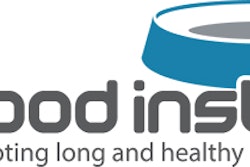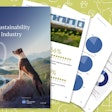
The Pet Food Institute (PFI) has been working to address numerous challenges facing the industry, PFI Director of Public Affairs Morgan Beach said.
Beach gave an overview of some of the current pet food sector challenges while speaking during the Kansas Ag Summit on July 26.
1. Product registration portal
PFI has been actively working on the development of a pet food product registration portal, which was created with oversight from PFI members who had faced challenges in registering products across all 50 states. The processes to register products had not been consistent on a state-by-state basis, Beach said, adding that in some cases, the processes were from “the dark ages.”
Stressing consistency, the developers of the product registration portal modeled it after a pesticide registration portal.
The pet food product registration portal is being piloted in Missouri, Montana and New Mexico.
2. Transportation
One of the key supply chain obstacles the industry is facing is related to transportation. Beach said these particular challenges seem to have been exacerbated by the COVID-19 pandemic.
The industry is presently challenged by a shortage of transportation drivers, and also by difficulties in accessing shipping containers.
3. Access to key ingredients
Low-carbon fuel standards are also causing difficulties for the pet food industry. And while the industry supports the use of renewable diesel, it does cause a conflict because animal and vegetable fats are used in both biodiesel and in pet food.
Beach said as the demand to produce more renewable fuels intensifies, some ingredients have as much as tripled in price.
That also causes pet food manufacturers to have to reformulate because some ingredients that customers have grown accustomed to are simply not available.
“How do we communicate this,” she rhetorically asked.
4. State legislation and regulation
PFI has “invested time and space” in communicating with governments concerning regulations. Since pet food is regulated at both the state and federal level, the industry is “seeing a lot of challenges with consistency across state interpretation.”
Beach said the industry wants to make sure there is consistency and that food safety needs are met.
In addition, she said, some states are pushing laws such as taxing pet food manufacturers.
5. Export markets
The U.S. pet food industry has trade access to some countries, but some barriers remain. The problems is that those barriers are typically political rather than science-based.
Beach says the challenge is how to communicate the science, and how that impacts trade negotiations. The aim is to emphasize that the U.S. is a trusted and reliable source in order to grow the domestic pet food industry’s footprint around the world.

















